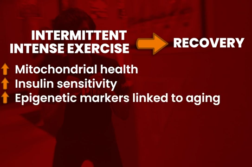INDIANAPOLIS, Ind. (Ivanhoe Newswire)— It’s called post-intensive care unit syndrome, or PICU and prior to the pandemic, many of us may never have heard of it. But patients who survive an extended stay in an intensive care unit on a ventilator may have a number of unique health challenges to overcome. More on how hospitals are rethinking recovery for COVID patients.
For thirty-three-year-old Robert Hardy, coaching his son D’yon means the world to him. But just a few months ago, Robert spiked a fever. Over four or five days his health tanked. Finally, he called 911.
“Was going down my steps at the apartment, walking past my truck. And next thing I know, I woke up in the hospital with a tube in my mouth,” recalled Robert Hardy III.
Robert had COVID. He was on a ventilator and in a coma for 16 days. When he woke up, he had no idea what had happened and no idea what was yet to come, starting with a blood clot in his knee.
“Physical therapy came in the room and got me out of the bed and I’m thinking I’m going to walk to the bathroom on my own and legs couldn’t walk,” shared Hardy.
Dr. Babar Khan developed the critical care recovery center model more than a decade ago. He says after patients are discharged some physical symptoms may take months or longer to improve.
“It can be up to a year; up to two years before certain ICU survivors really can go back to their functioning that they were doing before,” explained Babar Khan, MD, a critical care physician at Regenstrief Institute at Indiana University.
“Sometimes I get frustrated because, you know, before this situation, I was healthy, having fun with my kids and doing everything I wanted to do,” shared Hardy.
But he is thankful to be here and knows he needs to walk before he can jump, shoot, and run.
Dr. Khan says there are about 20 academic centers across the country treating survivors in ICU recovery centers much like the one at Indiana University. Many hospitals are now shifting their model of care to address all of the physical, social, and emotional concerns facing recovering COVID patients like memory problems, depression and anxiety.
Contributors to this news report include: Cyndy McGrath, Executive Producer & Field Producer; Kirk Manson, Videographer; Roque Correa, Editor.
To receive a free weekly e-mail on Medical Breakthroughs from Ivanhoe, sign up at: http://www.ivanhoe.com/ftk
MEDICAL BREAKTHROUGHS
RESEARCH SUMMARY
TOPIC: RETHINKING COVID RECOVERY: MARATHON, NOT A SPRINT
REPORT: MB #4807
BACKGROUND: COVID-19 is a coronavirus that is primarily transmitted from person-to-person via respiratory droplets. COVID-19 can cause a wide variety of symptoms such as fever or chills, cough, shortness of breath and difficulty breathing, fatigue, headache, nasal congestion or runny nose, muscle and body aches, sore throat, new loss of smell or taste, nausea and vomiting, and diarrhea. The estimated incubation period for the virus to show symptoms is between two and fourteen days with an average of five. Although, some patients never develop symptoms or feel unwell. Treatment for COVID-19 is primarily supportive to relieve patient’s symptoms and manage respiratory or organ failure.
(Source: https://www.cdc.gov/coronavirus/2019-ncov/hcp/non-us-settings/overview/index.html)
INTENSIVE CARE: COVID-19 can also cause severe respiratory problems such as pneumonia or even in severe cases, acute respiratory distress syndrome. In pneumonia, the lungs become filled with fluid and cause trouble breathing and in severe cases require treatment at the hospital with oxygen and mechanical ventilation in an intensive care unit or ICU. Intubation and ventilation are physically traumatic to the body and extended periods of sedation can cause the body to fatigue. However, for a patient’s long-term recovery timely and effective treatment is essential for severely ill patients to limit damage to the body.
POST-INTENSIVE CARE: Many patients report lingering weakness, inability to tolerate activities like exercise, and reduced quality of life after a stay in the ICU. COVD-19 hasn’t been around long enough yet to fully understand the long-term effects post-COVID recovery in an ICU. But, even under normal circumstances, patients would report physical impairments, cognitive impairments, anxiety, depression, post-traumatic stress disorder, or even delirium. All of theses symptoms are a part of what is called post-ICU Syndrome. After recovering from acute illness, patients will need to go through physical therapy, cognitive exercises, as well as receive emotional support through behavior specialists. Babar Khan, MD, a critical care physician at the Regenstrief Institute at Indiana University says, “That’s a major problem for COVID-19 patients and they’re requiring very high amount of ventilator support. Now the COVID-19 survivor once they come out of the ICU they could develop symptoms associated with cognitive impairment, which essentially means they’re unable to do the things that the brain demands or that they were doing before coming to the ICU such as high-level executive function, paying attention to things. And because of just being in the ICU and not able to mobilize themselves for an extended period of time, they can develop symptoms of physical impairment or physical weakness. You put them all together, you have an ICU survivor of COVID-19 who have problems with memory, attention, executive function.”
(Source: Babar Khan, MD, a critical care physician at the Regenstrief Institute at Indiana University, https://labblog.uofmhealth.org/rounds/recovery-after-severe-covid-infection-poses-unique-challenges)
FOR MORE INFORMATION ON THIS REPORT, PLEASE CONTACT:
REGENSTRIEF INSTITUTE PR
If this story or any other Ivanhoe story has impacted your life or prompted you or someone you know to seek or change treatments, please let us know by contacting Marjorie Bekaert Thomas at mthomas@ivanhoe.com




